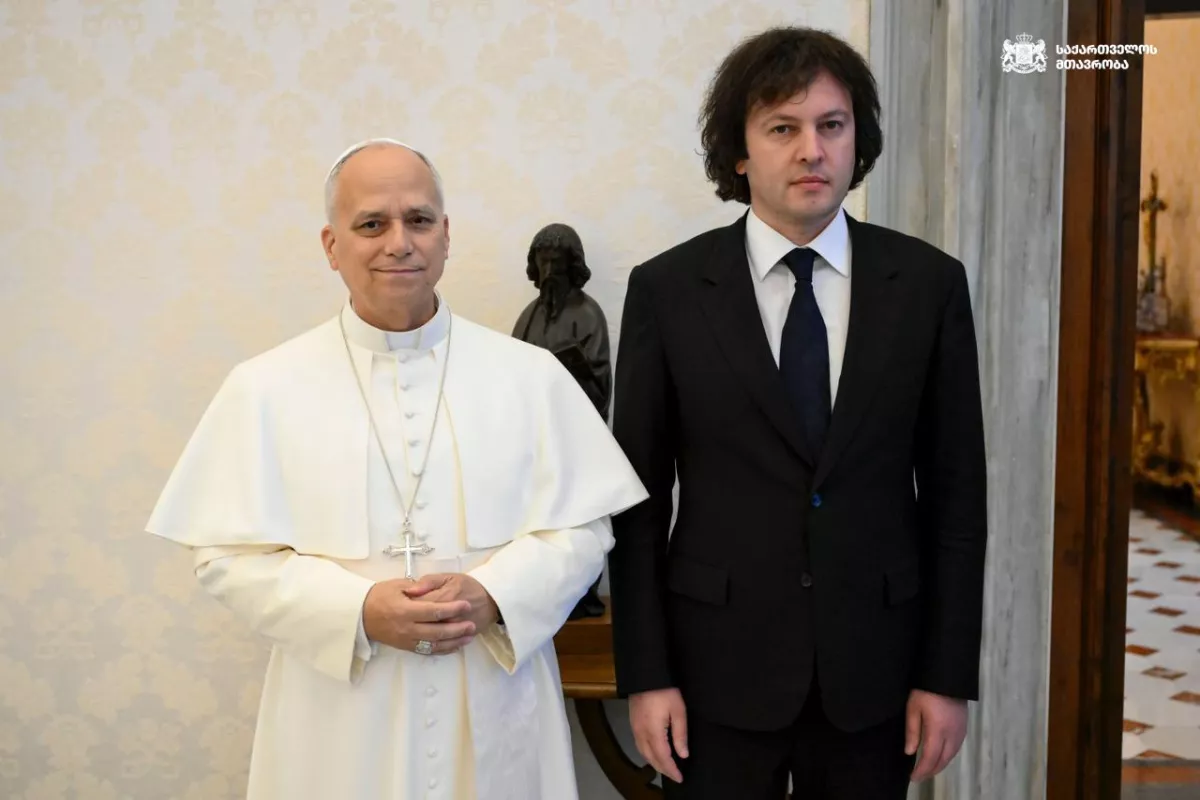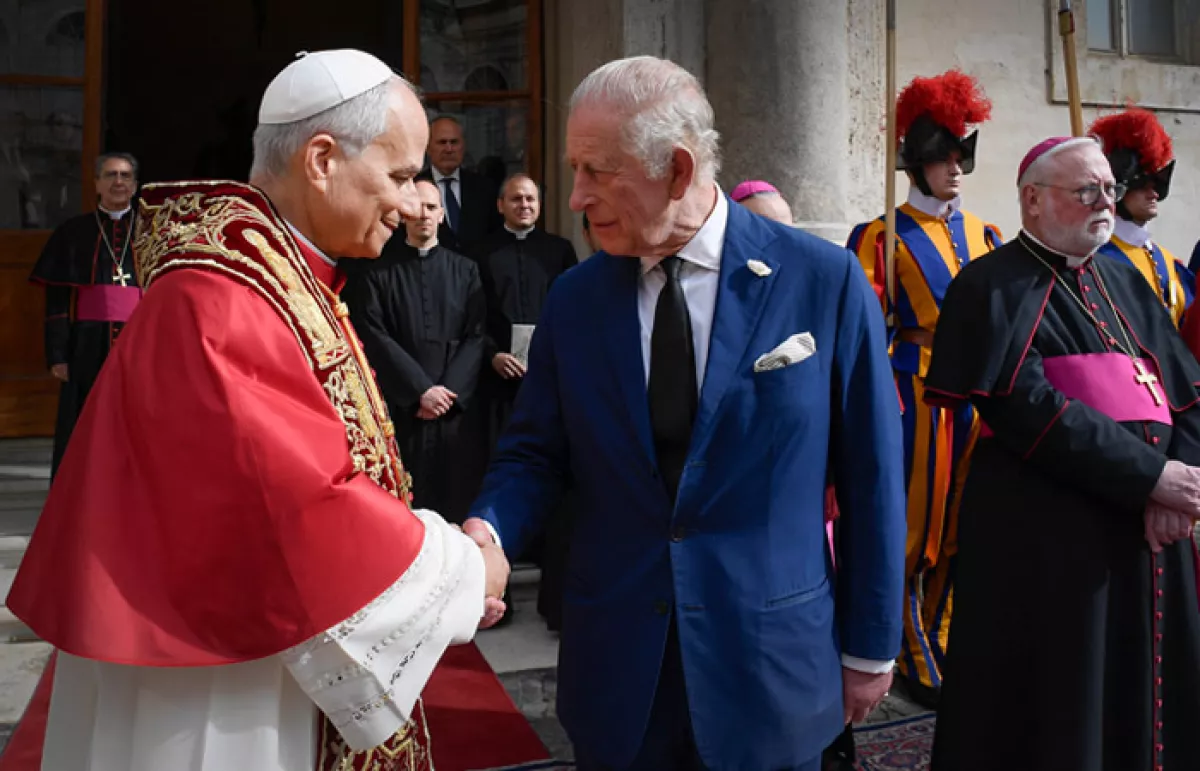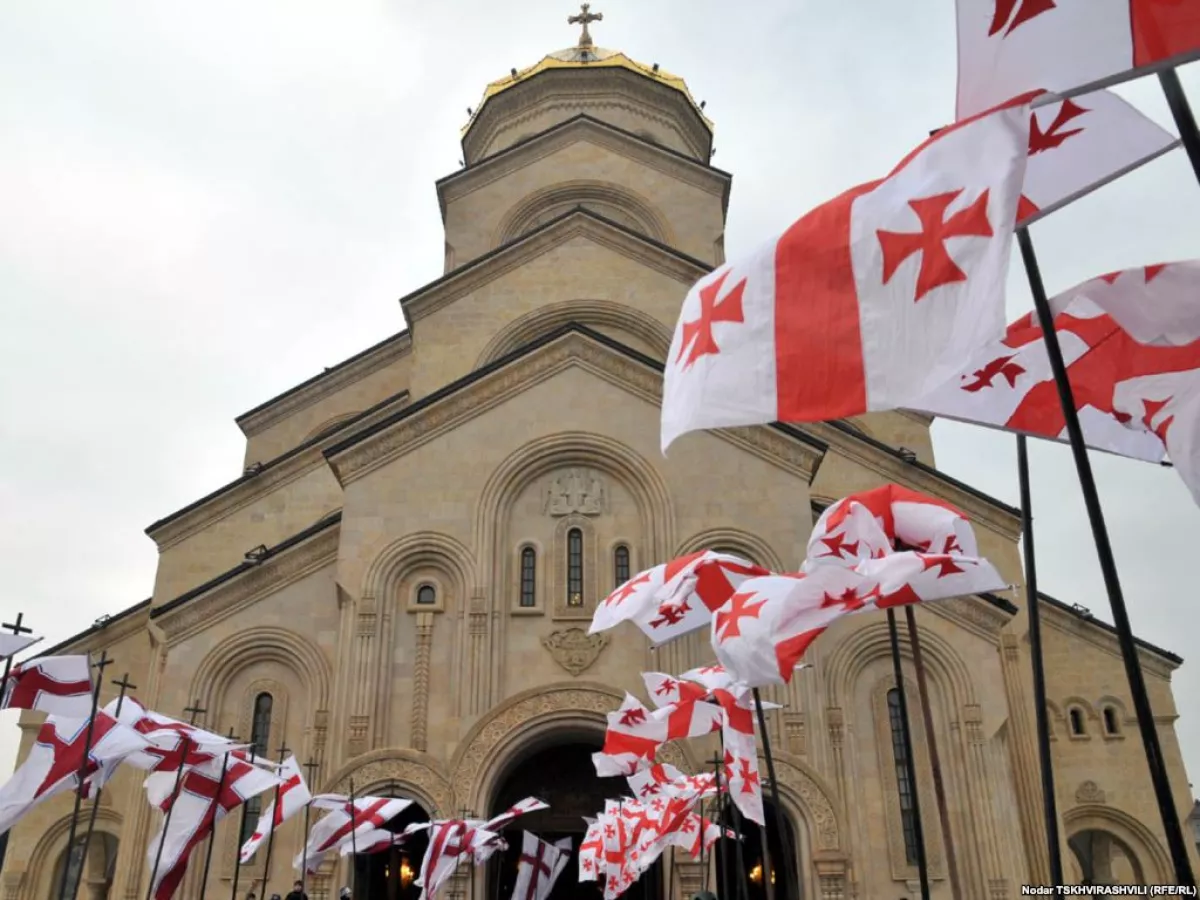Vatican and Georgia: conservatism vs. liberal “values” Article by Vladimir Tskhvediani
Irakli Kobakhidze has paid his first visit to the Vatican in his capacity as prime minister. This visit alone completely undermines the claims of the pro-Western opposition about the alleged “isolation” of the Georgian Dream government and its supposed “illegitimacy.”
During his meeting with Pope Leo XIV, Irakli Kobakhidze once again congratulated him on behalf of the Georgian government and people on his election as Head of the Roman Catholic Church, and expressed hope that His Holiness would contribute to the further strengthening of relations between Georgia and the Holy See.

“We had a very interesting conversation with the Pope. The support of the Vatican and the Pope is very important to us. Since the restoration of our independence, this support has been extremely significant, for which I expressed my gratitude to the Pope. The Vatican’s support for our sovereignty and territorial integrity is particularly important, and we emphasised this.
We also discussed the ongoing developments in our country and the challenges facing both our nation and the modern world, including when it comes to the struggle for Christian values. We had a very interesting discussion with the Pope about the challenges our country faces in defending Christian and traditional values,” Kobakhidze said following his meeting with Leo XIV.
Kobakhidze also invited Pope Leo XIV to visit Georgia.
On the eve of the Vatican visit, Kobakhidze particularly emphasised that Georgia’s aspiration to join the EU was originally linked firstly to Christian values. He noted with regret that united Europe itself is now moving away from these values.
“There are certain principles and values. One of them is linked to identity. For us, this means national and Christian identity, and our aspiration toward Europe only has meaning if these values are respected — if we are welcomed and the doors are opened to us by a Europe built on a strong Christian identity,” Kobakhidze said.
The prime minister also underscored Georgia’s importance for the West due to its strategic geographic location. According to him, “the only effective route for the EU to expand eastward and improve its economic performance amid ongoing conflicts is through Georgia.”
“I have said many times that the European Union’s share of the global economy once stood at 30 per cent, then fell to 17.5 per cent, and, based on current trends, will continue to decline year after year. This is a colossal drop — from 30 to 17.5 per cent. Meanwhile, for example, in 2008 the U.S. economy lagged behind the EU economy by several trillion dollars, whereas today it is almost twice as large,” Kobakhidze stated.
In addition, the Georgian prime minister spoke about the reasons behind the decision to deepen cooperation with China. According to Kobakhidze, China has its own system of values and builds its relations with other countries based precisely on those values.
The fact that the significance of a united Europe in today’s world is declining is understood not only by Irakli Kobakhidze. This is also recognised in the Vatican, which for centuries was one of the key centres of the expansion of European Christian civilisation into other parts of the world. That is precisely why, for the Holy See, two priorities are becoming increasingly relevant: first, closer coordination with other former centres of such expansion; and second, the development of relations with Christian centres independent of Western Europe that possess unique experience in interacting with peoples and cultures different from the European one. In this sense, Georgia represents one of the most vivid examples of such a centre.

A month before the visit of Irakli Kobakhidze — on October 22–23, 2025 — King Charles III of the UK paid a historic state visit to the Vatican, where he not only met with Pope Leo XIV but also took part with him in a joint ecumenical prayer in the Sistine Chapel. This marked the first such joint service between a Roman pontiff and a British monarch in the past 500 years and became a highly symbolic event, given that the King of Great Britain is also the head of the Anglican Church, which for centuries had been in religious confrontation with the Vatican.
The visit of King Charles III and the joint service clearly demonstrated that the former religious disagreements are being overcome, which means that a form of “geopolitical coordination” between London and the Vatican, taking into account the new realities, is becoming possible. Above all, this concerns regions where the UK has historically been particularly sensitive to the activity of the Roman Catholic Church: in Muslim and Asian countries, including China.
The Vatican, in turn, cannot ignore either the transit processes or the economic integration that is unfolding before our eyes along the Middle Corridor — processes that are developing essentially “outside” the traditional maritime routes long controlled by Western powers. This factor also explains the growing interest of the Holy See in Georgia as a key link in the Middle Corridor.
Georgia’s importance has increased sharply thanks to its cooperation with Muslim countries and China within the framework of the same Middle Corridor. At the same time, such cooperation by no means requires Tbilisi to renounce its Christian identity and traditional values. Paradoxically, attempts to impose such a renunciation — by replacing it with the much-touted “LGBT agenda,” as well as to destabilise the economy and undermine statehood by opening a “second front” against Russia — are coming precisely from certain Christian countries that are members of the EU.

With its current example, Georgia demonstrates that in order to serve as a “bastion” of Christianity, it is by no means necessary to wage war or remain in hostility with neighbours who profess a different religion. On the contrary, for many years the Armenian understanding of the role of a “Christian outpost” was built precisely on an emphasis on enmity and confrontation with Muslims. The outcome of this approach has clearly proved to be extremely tragic.
In the modern world, Georgia is beginning to position itself as a stronghold of traditional, conservative Christianity. In this capacity, unexpectedly for many, it is acquiring a significance for the Christian world that is disproportionate to its modest size, resources, and economic potential.
Within the Christian world — both in the U.S. and in Europe — there is a growing demand specifically for conservative Christianity. This is a natural reaction to the imposition of liberal “values” both in many dioceses of the Roman Catholic Church and across most Protestant denominations. Conservatives and traditionalists are beginning to look to Orthodoxy as an alternative to what they perceive as “total liberal dominance.”

Quite recently, the American youth conservative leader and supporter of Donald Trump, Charlie Kirk, who tragically died, showed a serious interest in Orthodoxy and, in recent years, called on young Americans to study it. This alone speaks volumes.
Meanwhile, the “Greek” version of Orthodoxy often causes disappointment among representatives of other nations due to Greek liberalism or arrogant nationalism, while the “Russian” version frightens many with its perceived “imperial” character. Against this background, interest in Georgia as a centre of conservative Orthodoxy is growing within the Christian world — and it is evident that the Vatican is interested in building relations with such a centre.
By Vladimir Tskhvediani, Georgia, exclusively for Caliber.Az








